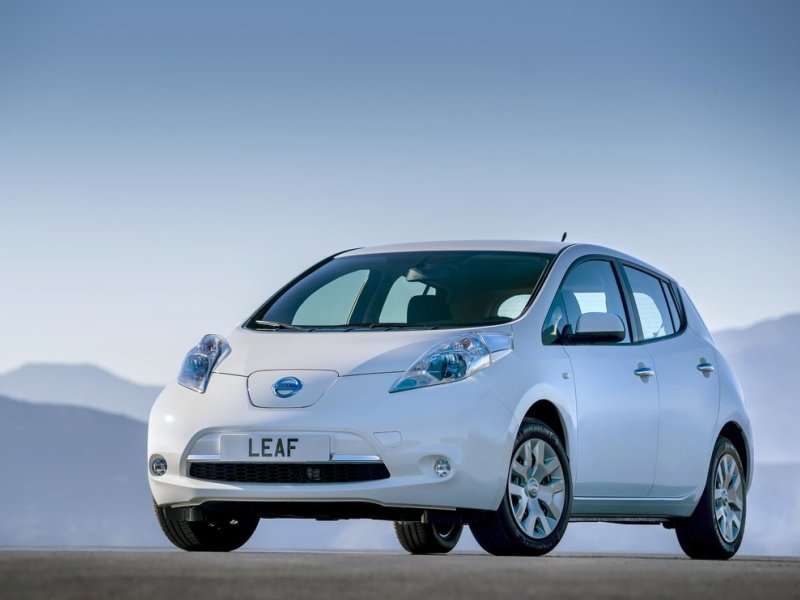Recent Articles
Popular Makes
Body Types
Top 10 Electric Car Myths
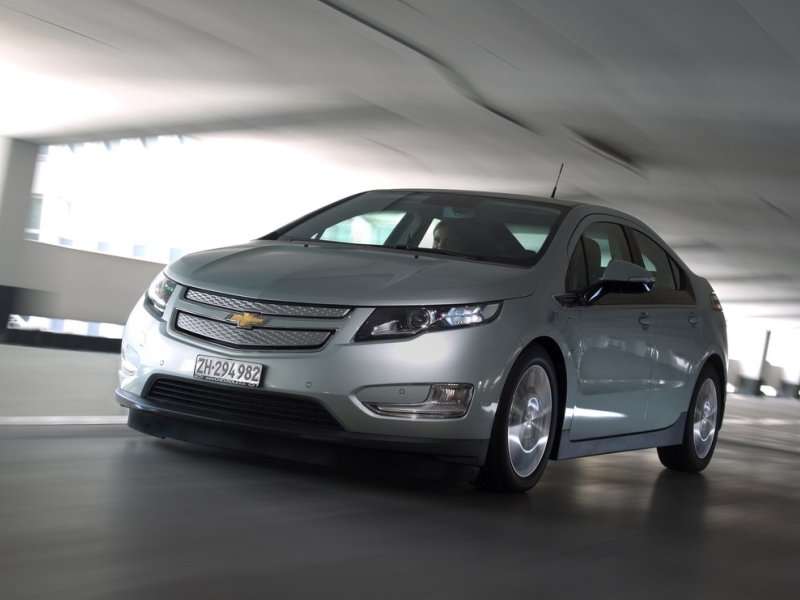
With an ever increasing number of mainstream manufacturers getting into the electric car business, it is remarkable that electric car myths still persist, even as the palette of choices becomes more and more broad. With the industry still in its infancy, the current selection of electric cars ranges from a bare bones no frills model in the form of the Mitsubishi i-MiEV, to a mid-line popularly priced model in the Nissan LEAF, to a full-on luxury sports sedan in the form of the Tesla Model S.
Still, even with the successful proliferation of these products, a great number of people believe living with an electric car is a folly fraught with considerable risk. Chief among these concerns is the range afforded drivers of electric cars. Many people still think an electric car is likely to leave them stranded on the side of the road somewhere completely out of charge.
This is largely due to the fact most people greatly overestimate how far they drive on a given day. Meanwhile, a number of studies have revealed the average American only drives some 40 miles or less on a typical day. Given the fact pretty much every battery-electric car on the market doubles that quite easily, this concern is somewhat unfounded.
There are a number of other generally accepted electric car myths; these include…
Top 10 Electric Car Myths: Electric Cars Cost Too Much
It is true electric models appear to cost more than similar petroleum powered models initially. However, there are all sorts of government subsidies in place to bring the cost of electric cars more into parity with internal combustion based ones. Further, an often-overlooked factor is the price of fueling and maintaining an internal combustion automobile. With literally hundreds of moving parts, a petro-fired automobile requires considerably more maintenance than an electric car. Further, think of all the expensive petroleum-based liquids conventional cars need; transmission fluid, motor oil, brake fluid, and gasoline/diesel. Electric cars have far fewer moving parts, many of which require no lubricants. Further, all of the tune-ups and filter changes required by petroleum-powered cars aren’t needed for electric cars. There is no fuel filter, there is no air filter, there is no oil filter, and there are no spark plugs. Subtract the cost of maintenance along with the reduced price of fueling the vehicle, along with the government subsidies offered to offset part of the purchase price and the electric car actually works out to cost less in the long run.
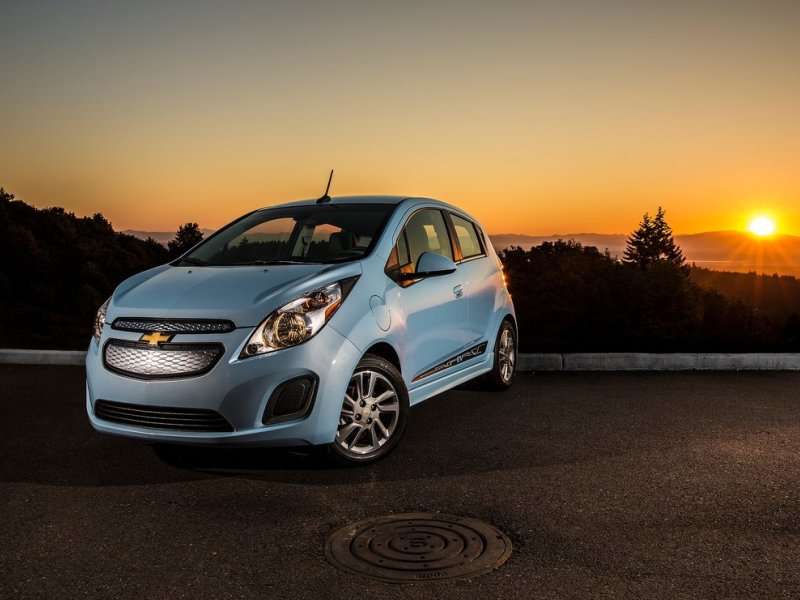
Top 10 Electric Car Myths: Electric Cars Don’t Reduce Air Pollution
This school of thought goes the electricity used to charge the car’s battery pack had to come from somewhere, and more often than not, that somewhere is a coal-fired electrical generation plant. In fact, some naysayers have gone as far as to posit, electric cars aren’t really electric cars at all, they’re coal cars, in the same way as a diesel locomotive, even though it is powered by electricity, isn’t an electric train. While there is some truth to this argument, it overlooks the fact not all powerplants are coal fired. A considerable amount of electricity is hydro, generated by falling water at dams. Further, there are more wind farms and solar farms generating electricity than ever before. When compared to the amount of pollutants emitted from burning gasoline and diesel fuel in cars, electric cars produce considerably less pollution. Plus, in the case of electricity generated from wind and water power, electric cars produce no emissions at all. As more carbon-free solutions for generating electricity come on line, this will improve even more.

Top 10 Electric Car Myths: Electric Cars Make Energy Bills Higher
The reality here is yes and no. Yes, your electric bill will be higher, however your petroleum bill will go away altogether. And further, because the cost of electricity is so much lower than the cost of petro-fuels, even with a higher electric bill you’ll still come out way ahead. The U.S. Department of Energy has computed the cost of fueling a vehicle with electricity compared to fueling a similar vehicle with gasoline. To do this, the department’s statisticians took the average distance a gasoline-powered vehicle could drive on a gallon of gas (28.2 miles for comparable 2012 model year cars), and calculated how much it would cost to drive the average electric car the same distance. The department’s findings indicate the energy in a gallon of gasoline costs about three times as much as the equivalent amount of electricity (at current rates). Further, the price of gasoline has a tendency to vary, while the price of electricity remains fairly stable. This makes it easier to budget with an electric car than a gasoline powered one. One more thing, recharging your car at night, during off peak-usage hours reaps additional savings because the price of electricity goes down in many areas because many utility companies offer off peak/nighttime rates.
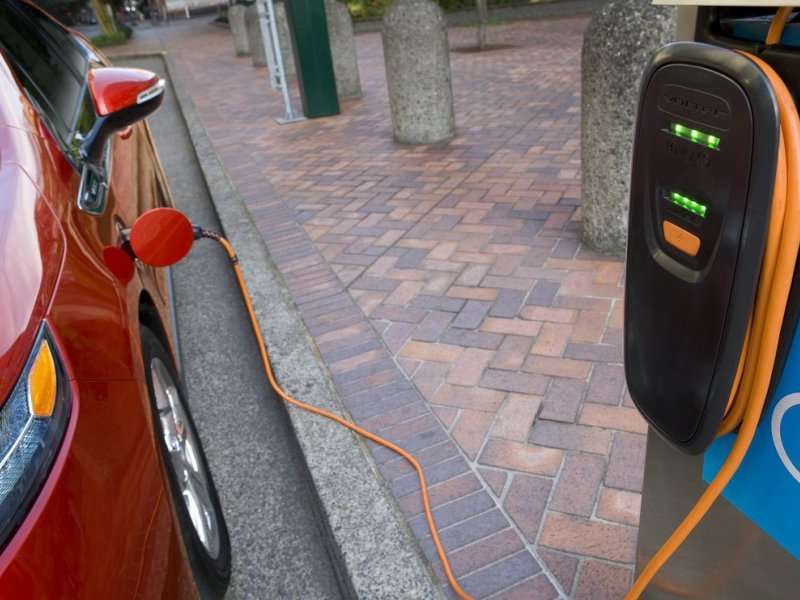
Top 10 Electric Car Myths: The Electric Grid Can’t Handle The Load
The overlooked factor here is most electric cars would be recharged at night when demand on the grid is minimal. Adding a bunch of electric cars to the system really won’t make that huge of an impact. In 2007, the Pacific Northwest Laboratory conducted a study, which found the existing off-peak electricity production and transmission capacity could fuel the daily commutes of 73 percent of all cars, light trucks, SUVs and vans on the road today. As demand grows, you can bet utilities will add more capacity, just as they have done every time technology has brought about changes in electrical consumption. This was true when we all adopted refrigerators, air conditioners, and televisions; and it will be true when we all adopt electric cars as well. BTW, another often overlooked factor is electric cars also act as storage devices and can actually put electricity back into the system when called upon to do so.
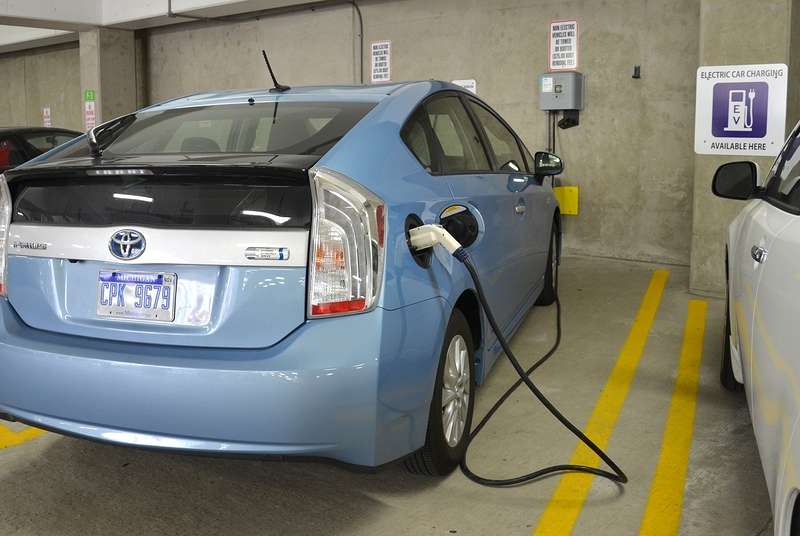
Top 10 Electric Car Myths: The Recharging Infrastructure Is Insufficient
While it is true there are currently far more gas stations in the world than electric car charging stations, the fact of the matter is with a bit of planning on the part of electric car drivers, this really is a non-issue. Just as you put your telephone, tablet, or laptop on the charger every opportunity you get, electric cars can be treated the same way. And again, given the average person only drives 40 miles a day and the average electric car has a 100-mile range; in much the same way as many of us only charge our phones at home at the end of the day, electric cars will be largely treated the same. Further, charging stations are becoming an ever more frequent sight in parking lots. Tesla Motors has proven charging stations can be built efficiently with its network of supercharging stations, offering free recharging for Tesla owners, and battery swaps (which may well prove to be the ultimate recharging solution).
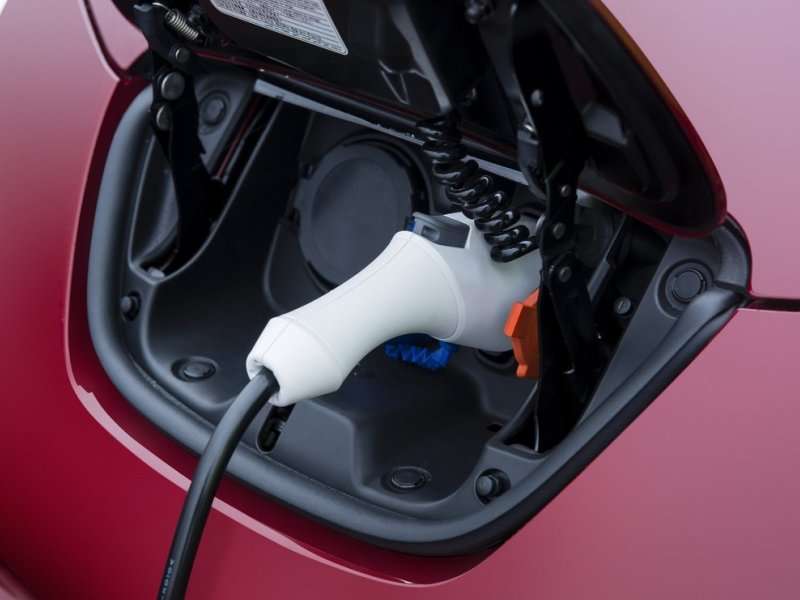
Top 10 Electric Car Myths: The Recharging Time Is Too Long
Granted, hearing it can take some eight hours or more to recharge an electric car from a conventional 120V electrical outlet is a justifiable concern. However, the reality is most charging stations use 240V systems, which cut that time considerably. Further, there are now supercharging systems capable of getting a battery to within 80 percent of its full capacity in 30 minutes or less. Here’s the thing though, most electric cars will be recharged overnight while their drivers sleep. What difference does it make if it takes four hours to recharge the car if you’re chilling at the pad, with no plans to go out anywhere? And again, this is where thinking strategically comes into play. Just as you plan your trips around the need to go to a gas station in a conventional car, you can plan to park near a public recharging station today. Of course, if you’re trying to do a long distance coast-to-coast drive in an EV at present, yes, this concern is still pretty real. But for simply driving around town and commuting back and forth to work, it really isn’t the issue it’s been made out to be.
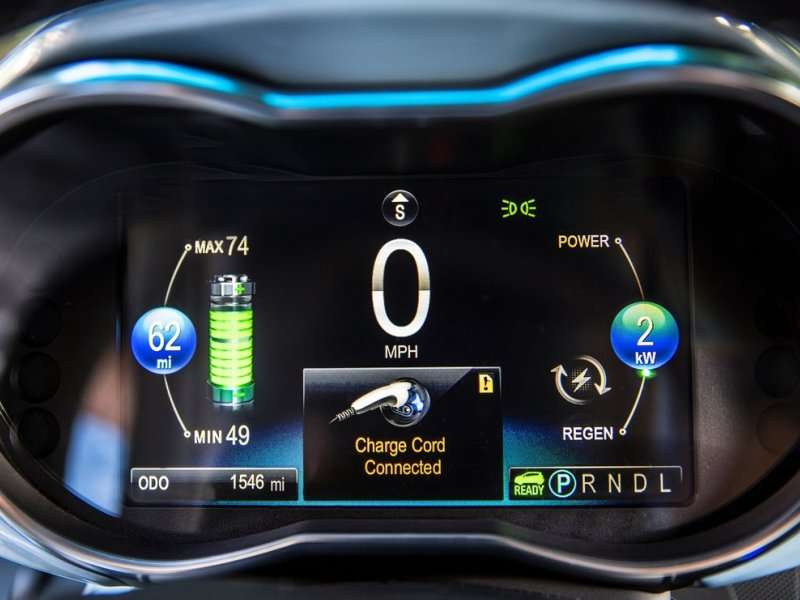
Top 10 Electric Car Myths: Battery Packs Are An Environmental Hazard
The fact here is conventional batteries are already being recycled at the rate of about 99 percent. In other words, 99 percent of all batteries in conventional cars are currently being recycled. And these are lead-acid batteries. The new battery technology being developed for electric cars lasts longer than the old lead-acid batteries, and further is more recyclable. What’s more, even after the battery packs currently employed in electric cars have outlived their usefulness as a power source for cars, they will still have enough capacity left in them to be viable energy storage vessels for other electric devices. Additionally, the lithium-based batteries currently in favor are not toxic. Further, given the valuable metals they contain, the secondary market for them is very strong, making them a valuable and therefore a conservable commodity.
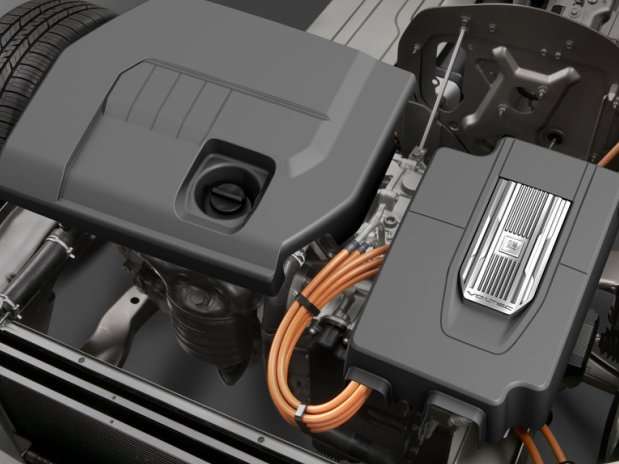
Top 10 Electric Car Myths: Replacing Battery Packs Is Expensive
Yes, if you paid cash for one, you’d be looking at somewhere around $15,000 to $20,000 to replace a typical electric car battery pack. Thing is, it will probably never happen. Every electric car manufacturer out there is offering battery pack warranties somewhere in the range of eight years or 100,000 miles. This means if you buy a new electric car, or lease one, in all probability replacing the battery pack is not going to be a concern. If you are the type of person who buys and holds, if you run into an issue with the battery pack outside of the warranty period, in all probability you’ll only need to replace a few cells as opposed to the entire thing. Plus, you know somebody out there is going to offer an extended warranty program for electric cars at some point. So if you buy an electric car used, odds are you’ll be able to acquire extended warranty protection for the battery pack just the same. Similarly, many new manufacturer warranties for electric cars are transferrable to subsequent owners. Bottom line, in all probability, you’ll never have to buy a battery pack.
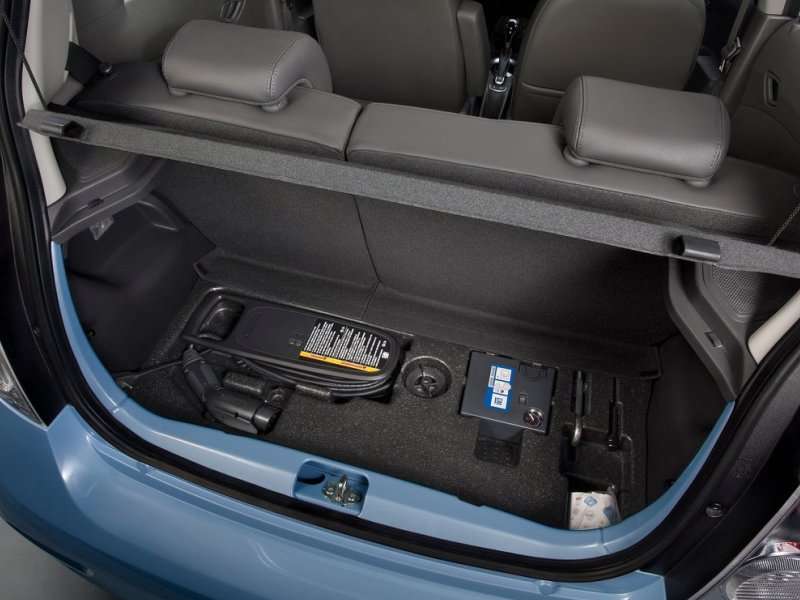
Top 10 Electric Car Myths: Electric Cars Are Fire Hazards
Yes, there have been some rather high profile incidents of late with Tesla Model S electric cars going up in flames, presumably after their battery packs have been ruptured. Just as airplane crashes make big news whenever they happen, leading some to question the safety of air travel, the true impact of these incidents is being inflated out of proportion. There are literally thousands of airplane flights every day, the vast majority of which go off without a hitch. Similarly, there are literally thousands of Tesla Model S cars on the road, along with a similar number of Nissan LEAF electric cars, as well as partially electric models from Ford and Chevrolet. If electric cars were so incredibly fire prone, you’d see electric car fires practically every day. Now that said, there may well be an engineering challenge facing Tesla, in which they need to improve some aspect of the design of the Model S to stave off battery pack punctures. However, in no way should this be construed as electric cars are more fire prone than any other type of automobile. Fact is internal combustion powered cars catch on fire with considerably more frequency, but nobody says these cars are unsafe because they catch on fire. And, for the record, the German Federal Motor Transport Authority investigated the Tesla incidents and found no manufacturer-related defects in the cars.
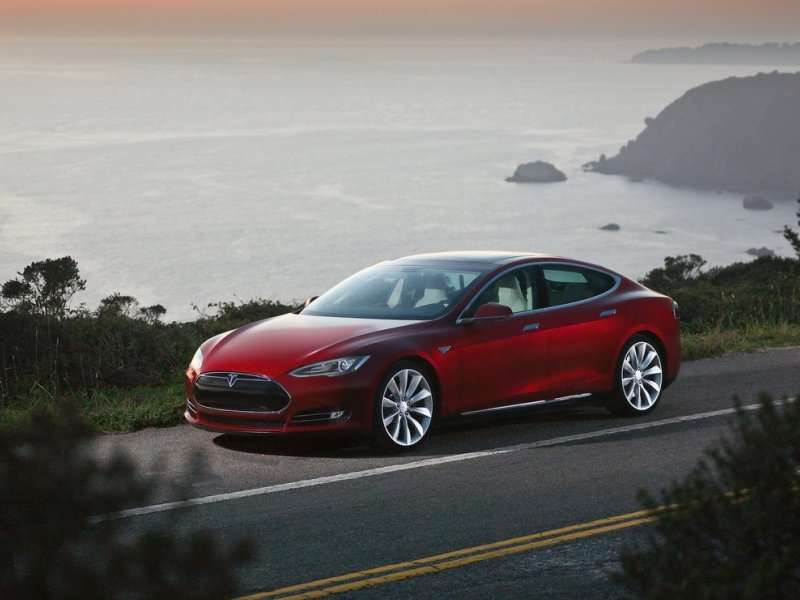
Top 10 Electric Car Myths: Electric Cars Are Unproven Technology
Newsflash! Electric cars have been around just as long as gasoline-powered cars. In fact, in the early days of the automobile, electric cars were far more plentiful than gasoline-powered cars. An electric car even held the land speed record until approximately 1900. While it is true the internal combustion engine has had the benefit of more than 125 years of continuous development, electric cars have been seriously worked on for over twenty years now. Many may recall General Motors actually offered an electric car back in 1996 with a range of some 160 miles on a single charge. In the interim, modern society has become more and more dependent upon battery-operated devices. If any technology is truly proven these days it’s portable electronics. And frankly, that’s all an electric car really is, a truly portable electronic device.
